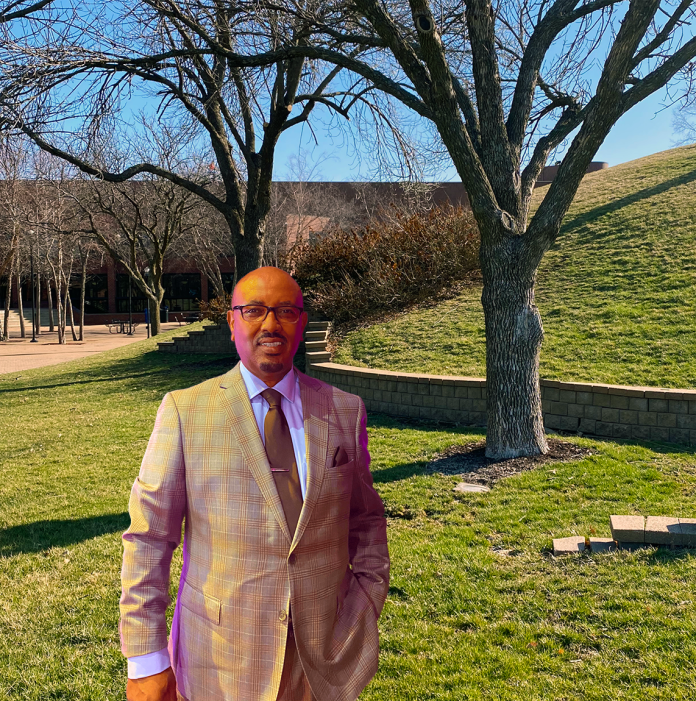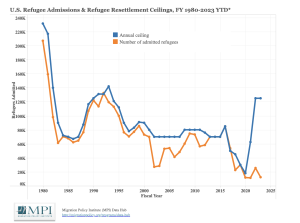
Fikru Aligaz, Supervisor of custodial services at JCCC, came to the U.S. when he was 18 years old, in search of freedom and new opportunities.
“I came here as a refugee from Ethiopia to America… Ethiopia was adopting socialism and the people were arrested, killed, so I was trying to save myself.”
In 1974, a radical group called the Marxist Derg staged a coup against Emperor Haile Selassie, which led to the Ethiopian Civil War. In the end, the new leaders of Ethiopia adopted communism. The leaders executed thousands of political opponents and aligned with the Soviet Union, according to The History Channel.
A quote from Aligaz’s book on page 20 reads, “I remember seeing bodies left by the side of the road to announce the killing of the night before. Anyone who examined a pile of bodies to see if friends or family were there was subject to execution or imprisonment themselves. Family members were not even allowed to cry.”
The Ethiopian Civil War resulted in widespread famine, the displacement of 50,000 civilians, and more than 100,000 deaths.
Aligaz’s life changed at a refugee camp near Ethiopia. He was walking around the downtown area of the city, when two French nurses asked him about any nearby tea and coffee shops and then invited him for coffee. Afterwards, the nurses invited him to travel with them to Djibouti, risking their lives to save him.
“They had a land cruiser in the back of their [compound]. They told me to lay down, and I lied down in the back of their car. They put box[es] and blankets [on top of me] so they could hide me because there was a checkpoint,” Aligaz said. “When I arrived at Djibouti, they gave me 5000 Djibouti Francs. [Then] they told me good luck, and they departed.”
The Derg government officially came to the end of 1987 when the Ethiopian People’s Revolutionary Democratic Front (EPRDF) entered the capital of Addis Ababa. This action ultimately led to the dissolving of PDRE and was replaced with the Tigray People’s Government of Ethiopia.
After arriving in the U.S., Aligaz says “I was able to adapt that, [to] learn the culture. And, I speak English already when I came here, so I immediately melted into the system.”
There are many differences between the U.S. and Ethiopia, ranging from political structures and cultural differences. Aligaz says
“Well, the culture is different, weather… and people are different. So when I came here for me to adapt all of those things you have to be willing and accept now you are in a different country.”
Although Aligaz’s transition to the U.S. was easy for him, he still brings things with him from home “I enjoy Kitfo. [It’s] made from ground beef, and they season it with different spices and they add butter on it. And [it’s] eaten with a type of Ethiopian bread called Injera.”
Approximately 125,000 refugees come to the U.S. each year according to Migration Policy Institute, in order to leave prosecution, conflict, wars, and violence from their previous place of origin.

Throughout the process of getting used to another culture and possible hostility towards refugees, Aligaz kept a positive mindset,
“If someone was coming with negativity, I would not entertain [it] to impact me. I would always respond with positive mind and direct the negativity somewhere else.”
A few years after moving to the U.S., Aligaz got a degree in Music from Mid-Nazarene University, and in December 2021, he got his master’s in business administration.
Aligaz has been employed by the JCCC’s housekeeping department for the past 36 years now. During the COVID-19 lockdown, he was able to finish writing his book, which is titled “Refugee and Hope.
His book “is about the unique story of when I left my country, and I didn’t know which way to go. But being naive at that point, I was marching on. It’s my experience as a refugee” Aligaz said.
Aligaz shares tips with students planning on migrating to a new country
“If they have hope, they will get to their destination. So, do not lose your hope… I had no idea what I was going to face…but I was focused and looking ahead to get here, and I made it.”
Eliana Klathis, features editor






















So amazing.